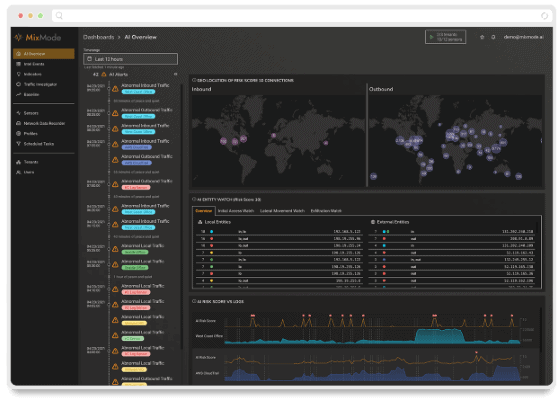Artificial Intelligence is Fundamental to the Future of Cybersecurity
According to a 2019 SME Cyber Security Report by Senseon, eighty-one percent of small and medium-sized enterprises (SME) think Artificial Intelligence (AI) is crucial to the state and future of cybersecurity.
Key findings in the report include:
- 88% of SMEs have a dedicated security budget
- 53% think an increased budget would help them deal with their cybersecurity workload
- 69% of SMEs are looking to implement AI security solutions in the next five years
- 44% are planning to invest in AI/ML in the immediate future
- 76% of respondents agree that AI could improve the efficiency of their day-to-day jobs
- 81% say AI will be able to improve the security posture of their organizations.
Improving Cybersecurity Through People Training or AI?
In an article published by Forbes last week, author Alan Zeichick gave consistent arguments for the implementation of AI and ML in cyber that we have been seeing this entire year: automation, speed, reduction of false positives, and no room for human error.
The latter of these seems to be the biggest problem enterprises are facing in cybersecurity. When asked which vulnerabilities caused the greatest potential information security risk for organizations, CISO, CEO, and CXO respondents cited human error by employees tied with inadequate security regulations/policies.
The problem is, enterprises continue to invest in training people rather than adopting new technologies. “While better training may be the most common tool for cybersecurity problems, it will never be enough. People make mistakes. It’s human nature. […] Better to bring in some robots—in the form of autonomous technologies, with AI and machine learning—to help those people out,” You Can’t Improve Cybersecurity By Throwing People At The Problem.
Investors Are Living In the “Gold Rush for Narrow AI”
Alex Bates, Managing Director for Neocortex Ventures, has invested in 5 artificial intelligence companies in the last year. He is a Forbes Technology Council Contributor and explains in this article how investing in AI is so different from investing in general technology:
“We’re going to remember this era of venture capitalism as a gold rush for ‘narrow AI.’ This term refers to savant-level algorithms that excel at just one thing but are otherwise kind of useless. Take a powerful chess engine, for example. It could defeat a human world champion easily, but couldn’t tell you the temperature outside. If you bundle enough of these strong, narrow systems together into one, that science fiction daydream approaches reality,” said Bates.
Bates lists 3 main differences between investing in AI versus investing in tech at large:
- It’s more technically complex
- Data is more important than users
- AI is poised for growth
The Market for Cybersecurity AI Software is Projected to surpass 30 billion by 2026
Research and Markets released a comprehensive look at the Global Artificial Intelligence in Cybersecurity Market for 2019 to 2026. The report says the AI in cybersecurity market is projected to reach USD 38.2 billion by 2026.
Opportunities for the AI in cybersecurity market include the growing need for cloud-based security solutions among SMEs and increased use of social media for business functions:
“Major drivers for the market’s growth are growing adoption of IoT and increasing number of connected devices, rising instances of cyberthreat, growing concerns of data protection, and increasing vulnerability of Wi-Fi networks to security threats. Furthermore, underlying opportunities for the AI in cybersecurity market include growing need for cloud-based security solutions among SMEs.”
The report also notes that the software segment is to hold the largest share of AI in the cybersecurity market during this forecasted period.
By Ana Mezic, Marketing Coordinator at MixMode

